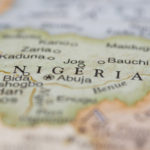
Nations identified as some of the worst persecutors of Christians also have some of the most corrupt governments, a new study by International Christian Concern asserts.
Afghanistan, Myanmar, Nigeria and North Korea are just a few of the nations that demonstrate a clear correlation between the persecution of religious minorities – particularly Christians – and internal corruption, “Corruption and Christian Persecution” by ICC Fellow Lisa Navarrette maintains.
Navarrette’s report compares those nations ICC has identified as the worst countries for Christian persecution since 2021 and the Corruption Perceptions Index scores assigned to those countries by Transparency International.
The index ranks 180 countries and territories based on their perceived levels of public sector corruption on a scale of 0 to 100, with 0 as highly corrupt and 100 as extremely clean.
ICC examines corruption and persecution in 14 countries:
- Afghanistan – “Corruption is pervasive across various sectors of Afghan society, including government, law enforcement, judiciary and business,” the report states. In 2022, Afghanistan posted a score of 24 on the Corruption Perceptions Index. At the same time, the report notes: “Social marginalization, discrimination and the constant threat of violence mark Christian persecution in Afghanistan, rendering the country one of the most dangerous for Christians globally.”
- Algeria – “Corruption is so widespread in Algeria that citizens call it the ‘national sport,’” Navarrette writes. The nation’s Corruption Perceptions Index scores fluctuated from 30 to 34 during the period from 2021 to 2023, “indicating varying levels of corruption perception,” the report states. In the predominantly Muslim nation, Christians – particularly converts from Islam – face varied forms of persecution including social ostracism and threats of violence. “While the Algerian constitution guarantees freedom of religion, in practice, Christians encounter discrimination, harassment and restrictions on their religious activities,” the report notes.
- Azerbaijan – During the three-year period Navarrette examines, Azerbaijan posted an average score of 23 on the Corruption Perceptions Index. “Corruption is prevalent in both the public and private sectors, including bribery, embezzlement, nepotism and favoritism,” the report states. Christians often face discrimination, harassment and sometimes violence. “The government imposes strict regulations on religious activities, requiring religious groups to register with the state and limiting their ability to proselytize or engage in public gatherings,” the report states.
- China – In spite of anti-corruption campaigns and institutional reforms, China’s rapid growth economically and its extensive bureaucracy “have created fertile grounds for corrupt practices, including bribery, embezzlement, kickbacks and nepotism,” the report states. At the same time, Christians in China face surveillance and harassment, and many experience detention, torture and even face death. “Christians in China have reported church demolitions, kidnappings, arbitrary detention and long-term incarceration without a conviction,” the report states.
- Egypt – While the government and nongovernmental organizations have worked on anti-corruption and transparency initiatives in Egypt over the past decade, corruption remains “a major issue” that “affects all aspects of businesses and government,” the report asserts. “Bribery, nepotism and embezzlement are commonplace,” the report states. Coptic Christians, who have a long history in Egypt, constitute a sizeable minority in the country, but they face “discrimination, violence and legal restrictions,” the report states.
- Eritrea – “An authoritarian government regime governs this country, and reports criticize it for its lack of transparency, arbitrary governance and widespread human rights abuses,” the report states, pointing to its Corruption Perceptions Index score of 22. The Eritrean government tightly regulates religious institutions and targets Christians who practice their faith in unregistered churches, the report notes. “The Eritrean government’s repression of religious freedom has led to a climate of fear and intimidation for Christians in the country,” the report states.
- India – While India has passed laws and established anti-corruption agencies, “corruption remains widespread due to factors such as bureaucracy, weak law enforcement and a lack of accountability,” the report asserts. At the same time, the ruling Hindu Nationalist Party has created a climate that has produced “heightened levels of violent persecution directed toward the Christian community,” the report notes.
- Indonesia – Although the nation has established anti-corruption agencies and passed legal reforms, corruption remains “rampant in Indonesia and affects all sectors, including government, law enforcement, judiciary and business,” the report states. Christianity is a recognized religion in the country, but Christian communities in Muslim-majority areas “often face discrimination, social marginalization and acts of violence perpetrated by extremist groups,” the report asserts.
- Iran – “Weak governance structures, lack of transparency, political patronage, and the influence of powerful interest groups, organized crime and terrorist networks often facilitate corruption” in Iran, the report asserts. At the same time, Iranian Christians “experience significant persecution due to the government’s strict interpretation and enforcement of Islamic law,” the report states. “Christians face discrimination, harassment and persecution, including arrest, imprisonment and even execution on charges such as apostasy, evangelism and blasphemy.”
- Myanmar – Armed conflict, militarization and political instability have fostered practices such as extortion, bribery and embezzlement in Myanmar, where Christians face discrimination and government-sanctioned persecution, the report notes. “The predominantly Buddhist government and military subject Christians to systemic persecution, including violence, displacement and denial of citizenship rights,” the report states.
- Nigeria – “Corruption is rampant in Nigeria and often includes bribery, embezzlement, electoral fraud and kickbacks,” the report states. Nigeria consistently ranked among the lowest countries during the period from 2021 to 2023 with a Corruption Perceptions Index score of 24. Social inequality and lack of accountability foster criminal networks and terrorist groups such as Boko Haram, the report asserts. “These groups target Christians often through violent attacks, abductions, kidnapping for ransom, forced marriages, forced conversions and destruction of property,” the report states.
- North Korea – “Corruption often takes the form of bribery, embezzlement, nepotism and cronyism, with elites and members of the ruling party benefitting disproportionately from access to resources and privileges,” the report states. Since Christianity is considered “a tool of Western imperialism” and a threat to the ruling regime, “Christian persecution in North Korea is severe and systematic,” the report asserts. Christians in North Korea are subject to arrest, imprisonment, torture and execution for practicing their faith or possessing religious materials, the report notes.
- Pakistan – In addition to embezzlement, bribery, nepotism and cronyism, corruption in Pakistan also manifests itself in electoral fraud, the report asserts. “It hampers efforts to provide public services, ensure justice, and promote transparency and accountability,” the report states. Pakistani authorities often use blasphemy laws to target Christians, “resulting in arrest, imprisonment, and mob violence,” the report notes. “Violent attacks on churches and communities are commonplace.”
- Turkey – “Corruption in Turkey has been a long-standing issue that is rampant in all sectors of society, including politics, business and law enforcement,” the report states. It is made worse by “lack of transparency in government processes and weak accountability mechanisms,” the report continues. The Christian minority in Turkey encounters “societal discrimination, limited religious freedom, and violence or harassment,” the report asserts.
“Lowering corruption rates can play a pivotal role in reducing Christian persecution rates by fostering a more just and accountable society,” Navarrette concludes.
“When corruption is minimized, the rule of law is strengthened, ensuring governments properly investigate cases of persecution against Christians and hold perpetrators accountable.
“Additionally, with improved governance comes greater protection for religious minorities’ rights, including freedom of religion and expression.”
The U.S. Department of State designated six of the 14 nations the report examines – Myanmar (Burma), China, Eritrea, Iran, North Korea and Pakistan – as Countries of Particular Concern. The designation is limited to countries where the government engages in or tolerates “systematic, ongoing, egregious violations of religious freedom.”
The State Department named two other countries the report examines – Algeria and Azerbaijan – to its second-tier Special Watch List.
The U.S. Commission on International Religious Freedom recommended 10 of the 14 countries – Afghanistan, Azerbaijan, Myanmar (Burma), China, Eritrea, India, Iran, Nigeria, North Korea and Pakistan – as Countries of Particular Concern. It recommended the remaining four – Algeria, Egypt, Indonesia and Turkey – to its Special Watch List.
This story originally appeared in the Baptist Standard.

















